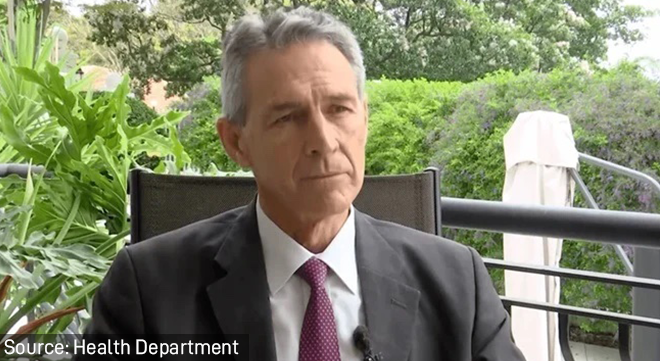The Department of Health’s timeline for the full implementation of National Health Insurance (NHI) was “years to decades”, Dr Nicholas Crisp, the deputy director general in the department responsible for the implementation of NHI, has said.
In an interview with the Bhekisisa Centre for Health Journalism’s Health Beat, Dr Crisp also said there would be a transition period during which medical schemes would continue to operate in their current form.
“You can’t switch on reforms of this magnitude in a short space of time. We recently had an interaction with Japanese colleagues who told us it took them 34 years, and we know that other countries have taken up to 70 years to get where they are. The more recent ones have taken shorter because they know what to anticipate, so anything between 14 and 20 years would be a good time,” he said.
During the transition period, medical schemes need to continue to provide cover and to purchase health services on behalf of their members, he said.
“But the question is, do we need 76 medical aids with 250-plus different packages, or should we be standardising packages and making the size of the risk pools bigger in a transition period and getting different ways in which [sic] we have transparency of what the benefits are?
“People want the public sector to tell them what the benefits of the NHI will be, but they have no clue what the benefits are that their own medical schemes cover them at the moment. It’s very fuzzy and very difficult to follow, and so in a transition period one has to run both systems.
“There won’t be an instruction that in the short term all medical aids will terminate. There’s very clear indication in the Bill, [in] the wording – and maybe people would like to see it stated even more clearly than it is – that when the National Health Insurance is fully functional, only then will there not be a need for medical aids and the medical aids will not be allowed to cover what is being covered by the [NHI] fund.”
‘Many things need to be put in place’
Asked to be specific about the length of the transitional period, Dr Crisp said, “How I wish I had a crystal ball. In times of economic boom, it can be shorter, and in times of economic hardship, such a right now, we probably need to go slower. I can tell you that we’re measuring in terms of years to decades, rather than months to years, in terms of their capabilities.
“We need to get the mechanisms and systems in place. We need to standardise the way in which we manage data. We need to make sure that we have interoperable patient records. We need a standardised patient record so that we can save on the duplications that we have both within the public sector and between the public and the private sector.
“There are many things that we need to put in place collectively before it is possible for us to move to there, and we showed that it’s possible to do it under huge duress in Covid. But when there’s less pressure and there’s not Covid and it’s more complicated than dealing with one disease, it’s likely to take us quite a bit longer. The good news is that we’ve shown we are quite capable of sitting around the table and working out these details between us.”
Dr Crisp said that during the transition, medical schemes would be required to align their primary healthcare packages with the benefits offered by the NHI.
However, he said this was not “an event” but something that had to worked towards.
“We have seen a process to review the Prescribed Minimum Benefits through the Council for Medical Schemes. That work needs to be accelerated and finished. But it needs to be harmonised with what we are doing in the public sector with the benefits package, particularly for primary health care.”
44 technical positions approved
Dr Crisp said 44 technical positions for NHI have been approved by the Minister of Public Service and Administration, and National Treasury has given permission for R30 million of this financial year’s NHI budget to be used for salaries for the new posts.
He said the people who fill these positions will draft regulations for public comment once the NHI Bill becomes law and implement the NHI Fund’s digital systems. He did not expect the appointments to be made before December.
Asked why the department was advertising the positions before the NHI Bill had been approved, Dr Crisp said there has been a lot of criticism about the absence of information about the benefits that NHI will provide. But the department does not have people to design the benefits.
“We can’t even do the benefit structure, never mind the definitions of the benefits, so it’s a Catch-22. So, what do you do and what don’t you do?”
He said the department needed a digital system, whether for NHI or an integrated platform to deliver health services in terms of the existing structure.
Of the 44 positions, those that were linked specifically to NHI would be contract positions, whereas those that would be required irrespective of whether NHI went ahead would be permanent. This was a condition of the funding from Treasury.
About half the positions were related to setting up the digital system.
If NHI is not implemented, the people who were employed to design the benefits would be qualified to do other things for the remainder of their appointment period, Dr Crisp said.



